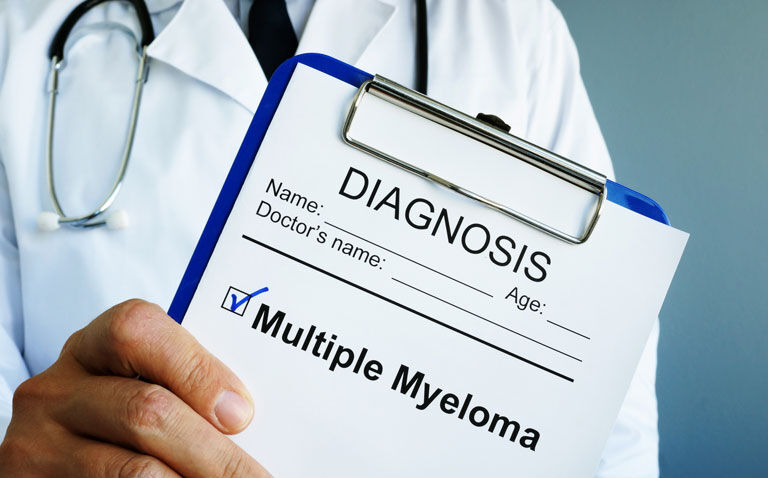Use of Ide-cel in refractory or relapsed multiple myeloma after two to four prior regimens more than halved the risk of progression or death
Ide-cel therapy for with relapsed and refractory multiple myeloma who had received between two to four previous regimens, significantly prolonged progression-free survival compared to a standard-regimen group, according to a recent and international, open-label, phase 3 trial.
A 2020 study found that the global incidence of multiple myeloma was 160,000 and which led to l106,000 deaths. While autologous stem cell transplantation has been a backbone of therapy for newly diagnosed patients with multiple myeloma eligible for high-dose therapy for decades, nearly all patients will eventually experience disease relapse. Although the introduction of CD38-targeting monoclonal antibodies (MCA), daratumumab and isatuximab, have significantly impacted the management of patients with multiple myeloma, patients who are refractory to CD38 MCA have a poor prognosis. In an earlier, phase 2 trial, ide-cel induced responses in the majority of heavily pre-reated patients with refractory and relapsed multiple myeloma.
In the current study, researchers undertook a phase 3 trial of ide-cel in adults with relapsed and refractory multiple myeloma who had received two to four regimens previously (including immunomodulatory agents, proteasome inhibitors, and daratumumab). Individuals were randomised 2:1 to ide-cel or one of five standard regimens. The primary end point was set as progression-free survival, whereas secondary endpoints included the overall response and survival.
Ide-cel and progression-free survival
A total of 386 patients with a median age of 63 years (60.5% male) underwent randomisation, with 254 assigned to ide-cel and 132 to a standard regimen. A total of 66% of the patients had triple-class-refractory disease, and 95% had daratumumab-refractory disease.
At a median follow-up of 18.6 months, the median progression-free survival was 13.3 months in the ide-cel group, compared to 4.4 months in the standard-regimen group (Hazard ratio, HR for disease progression or death = 0.49, 95% CI 0.38 – 0.65, p < 0.001). A response was seen in a significantly higher proportion of patients who received ide-cel compared to the standard regimen (71% vs 42%, p < 0.001) and a complete response occurred in 39% and 5% respectively. At the time of publication, overall survival data were immature.
Adverse events of grade 3 or 4 occurred more frequently in the ide-cel group (93% vs 75%) and cytokine release syndrome occurred in 88% of the ide-cel group although this was largely of grade 1 or 2 severity. Neurotoxic effects occurred in 15% of the ide-cel group, with 3% having an event of grade 3 or higher.
The authors concluded that ide-cel treatment gave rise to significantly prolonged progression-free survival and an improved response compared with standard regimens in patients with triple-class-exposed relapsed and refractory multiple myeloma.
Citation
Rodrigeuz-Otero P et al. Ide-cel or Standard Regimens in Relapsed and Refractory Multiple Myeloma. N Eng J Med 2023










